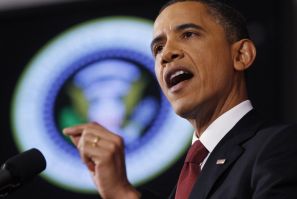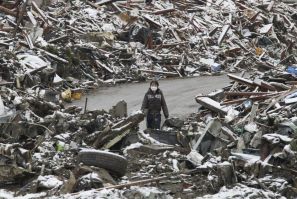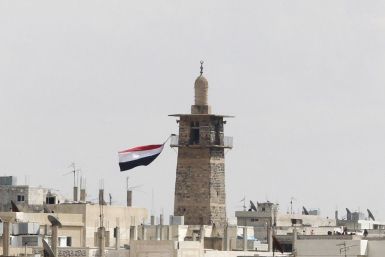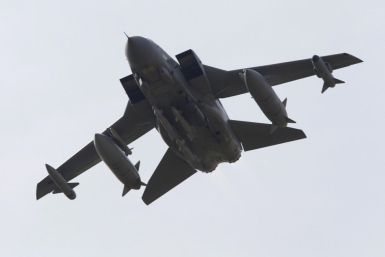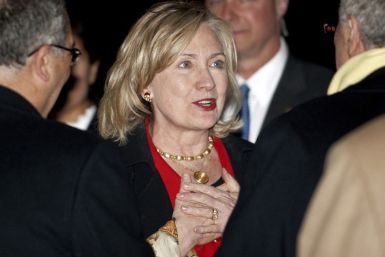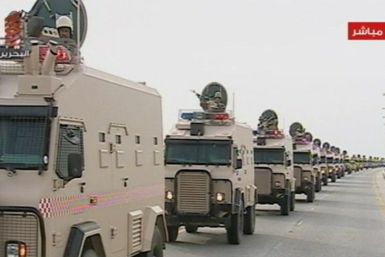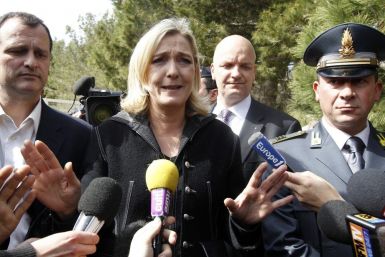In spite of the crippling sanctions and an arms embargo approved by the international community, Libyan leader Muammar Gaddafi continued to show resistance and the possible reason for such confidence could 144 tons of gold that he still controls.
As many as six people were killed by Syrian forces in a mosque in the city of Deraa, a flash point in the unfolding struggle against the Baath party despotism, media reports said on Wednesday.
Oil steadied on Wednesday due to concerns that unrest in Yemen may spill over into neighboring countries in the oil rich Middle East Gulf region, while an expected increase in U.S. crude inventories capped gains prices.
The president of Uganda, Yoweri Museveni, has written a lengthy a column in The New Vision newspaper of Uganda in which he condemned the western alliance’s military strikes on Libya. He also proposes a resolution to the Libyan crisis through the auspices of the African Union.
The World Bank is rethinking its role in the Middle East and North Africa to tackle economic and social problems that sparked political unrest, the bank's President Robert Zoellick said on Monday.
UN-sanctioned aerial and naval attacks on Libyan air defense and ground forces at the weekend are likely to see oil prices vault higher this week, overcoming demand-side jitters stemming from Japan's earthquake and Chinese monetary tightening.
The following is United Nations Resolution 1973, as passed by the Security Council on March 17, 2011 by a vote of 10-0, with 5 abstentions.
At least two demonstrators have been killed by security forces at an anti-government protest rally in the town of Deraa in southern Syria.
Bahrain, a tiny island in the western shores of the Persian Gulf, saw no reprieve from the recent anti-government protests.
Brent crude jumped by more than $1 to $116 on Friday on fears of rising geopolitical tension in the oil-rich Middle East and North Africa, after the United Nations approved military action to contain Libyan leader Muammar Gaddafi.
Brent crude jumped by more than $1 to stand above $116 on Friday on fears of rising geopolitical tensions in the oil-rich Middle East and North Africa, after the U.N. approved military action to curb Libyan leader Muammar Gaddafi.
U.S. Secretary of State Hillary Clinton said on Thursday that establishing a no-fly zone over Libya would require the bombing of air defenses, as the U.S. seeks broad action to protect civilians fighting Libyan leader Muammar Gaddafi's regime.
In the wake of the Middle East unrest, Nigerian scammer are now taking advantage of this situation: they are posing as representatives of the ousted dictators.
Publishing U.S. diplomatic cables helped shape uprisings in North Africa and the Middle East, WikiLeaks co-founder Julian Assange said on Tuesday.
Italy has blocked a ferry carrying about 1,800 people, primarily Moroccans fleeing Libya, from docking in Sicily, on orders from Rome’s interior ministry.
The decision by Saudi Arabia and other GCC countries to send armed forces to Bahrain to help quell protests is bad enough; but worse is the explanation that the move is in accordance with a Gulf Cooperation Council (GCC) defense pact.
The leader of France’s extreme right-wing National Front party, Marine Le Pen, has said that North African migrants who have arrived on the Italian island of Lampedusa to escape from unrest in Tunisia and Libya should be immediately turned back to their native countries.
Secretary of State Hillary Clinton will meet with members of the Libyan opposition in Paris on Monday as she takes part in a broader Europe and Northern Africa Trip where she will also visit Egypt and Tunisia.
The earthquake disaster in Japan looks set to dominate a Group of Eight foreign ministers meeting this week in Paris as members discuss ways to coordinate help for the only Asian country in the group.
Communiqué of European Council on the crisis in Libya, March 11, 2011, Brussels
The trading pattern of the prices of stocks and crude oil looks worryingly like it did just before the last recession.
Oil slid by more than $3 on Friday, with U.S. crude falling below $100, after an earthquake rocked Japan, creating a 10-meter tsunami and shutting down dozens of plants in the world's third-largest oil consumer.



